BOOM!!! PUTIN: HEY, BIDEN… GUESS WHAT? RUSSIAN NAVY: WE ARE COMING SOON TO THE CARIBBEAN NEAR YOU!
Ready to uncover the truth? Sick of the lies? Join our Telegram Channel now. It’s time for the real story! My gratitude to all my readers!
BOOM! Russia plans to hold naval exercises in the Caribbean this summer, near U.S. shores. This move, a response to the U.S. supporting Ukraine with NATO weapons, underscores rising global tensions. President Biden and President Putin are locked in a high-stakes geopolitical showdown, as the world watches anxiously. Discover the full story behind this provocative power play and its potential global implications.
In a dramatic escalation of geopolitical tensions, Russia is set to hold naval exercises in the Caribbean this summer, with port calls planned in Cuba and Venezuela, both a stone’s throw away from U.S. shores. This bold maneuver comes as a direct response to the United States green-lighting Ukraine’s use of NATO weapons inside Russian territory. As the drums of war echo louder, the world watches anxiously.
Russia’s Provocative Power Play. The Russian Navy’s planned exercises in the Caribbean mark a significant display of military prowess, signaling Moscow’s ability to project power far beyond its borders. This summer, several Russian warships and support vessels will navigate the waters near U.S. shores, stopping in Cuba, merely 400 miles away from American soil, and Venezuela. This move underscores Russia’s intention to reassert its global presence despite recent setbacks in the Black Sea.
A senior U.S. official commented,
“This is about Russia showing that it’s still capable of some level of global power projection.”
The message is clear: Russia wants the world, particularly the United States, to recognize its enduring military capabilities.
⇒ U.S. Nuclear Target Map – Do You Live In a Death Zone?
The Catalyst: NATO Weapons in Ukraine. The catalyst for this aggressive posturing is the U.S. decision to allow Ukraine to utilize NATO weapons within Russia. This development has not only heightened the stakes in the ongoing conflict but also provoked a furious response from the Kremlin.
Russian Foreign Minister Sergei Lavrov stated ominously, “Whoever allows Russian territory to be attacked will deeply regret it.” This declaration was followed by an equally chilling warning directed at the U.S.: “You will deeply regret this…”
A War of Words: Biden vs. Putin
Joe Biden, in a candid moment with reporters, acknowledged the gravity of the situation. When asked about Putin’s claim that supplying weapons to Ukraine to strike inside Russia constitutes direct participation in the war, Biden’s response was stark:
“I’ve known him for over 40 years. He’s concerned me for over 40 years. He’s not a decent man. He’s a dictator.”
Biden emphasized that the U.S. is not providing Ukraine with weapons to strike Moscow but rather to counter Russian forces near the border.
“We’re not giving Ukraine weapons to strike Moscow… just across the border where we are seeing significant fire,” he explained.
Putin’s Red Line. For Vladimir Putin, the supply of weapons to Ukraine that can be used to strike inside Russia is a clear red line. He has categorically stated, “Any weapons supplied to Ukraine to strike inside Russia is an act of war.” This declaration raises the stakes significantly, as it implies that any further escalation could lead to direct conflict between nuclear-armed superpowers.
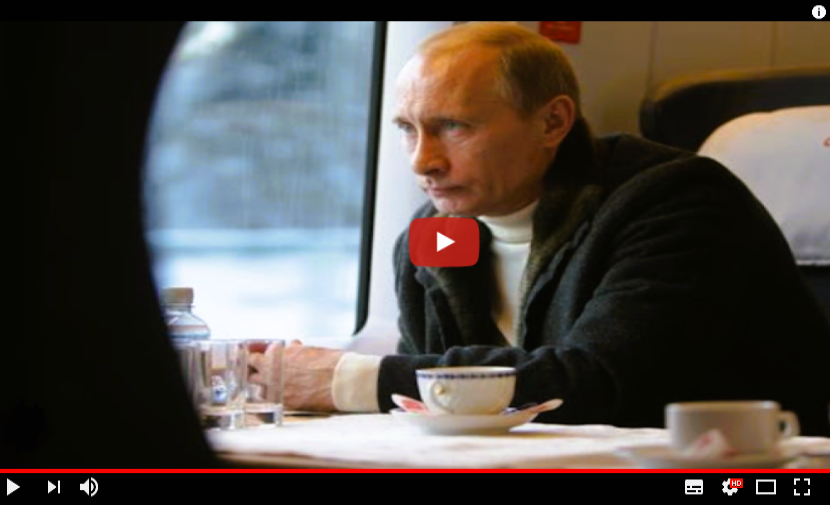
From the U.S. standpoint, the provision of these weapons is a necessary measure to support Ukraine in its struggle against Russian aggression. A senior U.S. official noted, “The president recently directed his team to ensure that Ukraine is able to use U.S. weapons for counter-fire purposes in Kharkiv so Ukraine can hit back at Russian forces hitting them or preparing to hit them.”
A New Front in the Caribbean. The upcoming Russian naval exercises in the Caribbean are not just a show of force but a strategic move to create a new front close to American shores. This maneuver is reminiscent of Cold War tactics, where both superpowers sought to establish spheres of influence and project power globally.
For the U.S., this development is deeply concerning. The proximity of Russian warships to American territory poses a potential threat and complicates the already tense relationship between the two nations. The presence of Russian naval forces in the Caribbean could potentially disrupt shipping routes, affect regional security, and provoke further military responses from the U.S.
BOOM! This Cold Drink Might Trigger Your Prostate – Here’s One Tip That Can Help You Maintain a Healthy Prostate Well Into Old Age
The geopolitical implications of these developments are profound. The U.S. and its allies must now contend with a resurgent Russia that is willing to take bold and provocative actions to assert its influence. The planned naval exercises in the Caribbean serve as a stark reminder that Russia remains a formidable military power, capable of challenging U.S. interests not just in Eastern Europe but also in its own backyard.
This isn’t the first time that Russia has flexed its naval muscles close to U.S. territory. During the Cold War, the Soviet Union frequently deployed its naval forces to the Caribbean and the Atlantic as a means of projecting power and challenging U.S. dominance. The Cuban Missile Crisis of 1962 is perhaps the most famous example, where the deployment of Soviet missiles in Cuba brought the world to the brink of nuclear war.
While the current situation is not as dire as the Cuban Missile Crisis, it nevertheless highlights the enduring strategic rivalry between Russia and the United States. The planned naval exercises are a clear signal that Russia is willing to go to great lengths to protect its interests and challenge U.S. actions that it perceives as threatening.
The international community is watching these developments with a mixture of concern and apprehension. NATO allies are likely to view the Russian naval exercises as a direct challenge to their collective security. Countries in the Caribbean and Latin America will be particularly uneasy about the presence of Russian warships in their region.
The U.S. will undoubtedly seek to reassure its allies and partners in the region, emphasizing its commitment to their security. However, this situation also presents an opportunity for Russia to strengthen its ties with countries like Cuba and Venezuela, which have long been at odds with the United States.
From a strategic perspective, Russia’s actions can be seen as a calculated gamble. By deploying its navy to the Caribbean, Russia is not only demonstrating its military capabilities but also testing the resolve of the United States. It is a move designed to force the U.S. to reconsider its support for Ukraine and to highlight the potential consequences of further escalation.
For the United States, the challenge will be to respond in a way that deters further Russian aggression without provoking a full-scale confrontation. This will require a delicate balancing act, involving a combination of diplomatic efforts, military readiness, and strategic communication.
The Role of NATO
NATO will play a crucial role in this unfolding drama. As a military alliance, it is committed to the defense of its member states, and any threat to the security of one member is considered a threat to the entire alliance. The deployment of Russian naval forces to the Caribbean will likely prompt NATO to increase its own military presence in the region and to enhance its readiness to respond to any potential threats.
NATO’s Secretary General has already indicated that the alliance is closely monitoring the situation and is prepared to take whatever measures are necessary to ensure the security of its member states. This could include the deployment of additional naval forces to the Caribbean, increased intelligence and surveillance operations, and enhanced cooperation with regional partners.
As tensions continue to escalate, the world is left to wonder what the future holds. The situation is fluid, and the potential for further escalation remains high. Both the U.S. and Russia have significant strategic interests at stake, and neither side appears willing to back down.
The coming months will be critical in determining the course of events. Diplomatic efforts will be essential in preventing a further deterioration of relations and in finding a way to de-escalate the situation. However, given the current state of affairs, it is clear that the road ahead will be fraught with challenges and risks.
#1 Most Hated By Big Pharma – Rogue Doctor Fixes Type 2 Diabetes
The planned Russian naval exercises in the Caribbean represent a bold and provocative move that underscores the enduring strategic rivalry between Russia and the United States. As both nations continue to navigate this complex and dangerous landscape, the potential for conflict looms large.
For now, the world watches and waits, hoping that cooler heads will prevail and that a path to de-escalation can be found. The stakes are high, and the consequences of miscalculation could be dire. In this high-stakes game of geopolitical chess, every move counts, and the future of global security hangs in the balance.
BQQM! Well-Played White Hats! Veterans Refuse Salute – Military Protocol Commander-in-Chief and The Greatest Generation Protest! [VIDEO]
BQQQM! The Hidden Meaning Behind the Unreturned Salute to President Biden by World War II Veterans
SOURCE: https://x.com/MarioNawfal/status/1798715486097793361






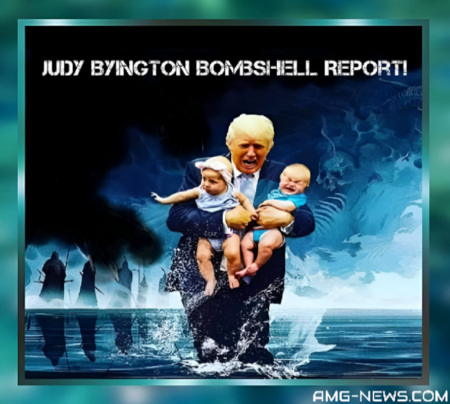
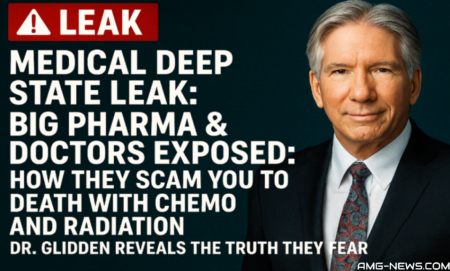
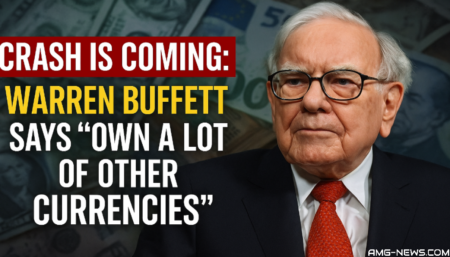
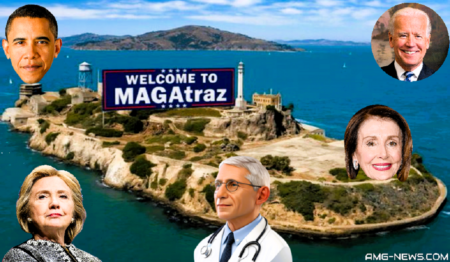
![BREAKING — FLORIDA DECLARES STATE OF EMERGENCY AS mRNA VACCINE DEATHS EXPLODE — “THIS IS GENOCIDE. NOT A SIDE EFFECT.” [OFFICIAL DATA]](https://amg-news.com/wp-content/uploads/2025/05/FLORIDA-DECLARES-STATE-OF-EMERGENCY-AS-mRNA-VACCINE-DEATHS-EXPLODE-450x253.png)

